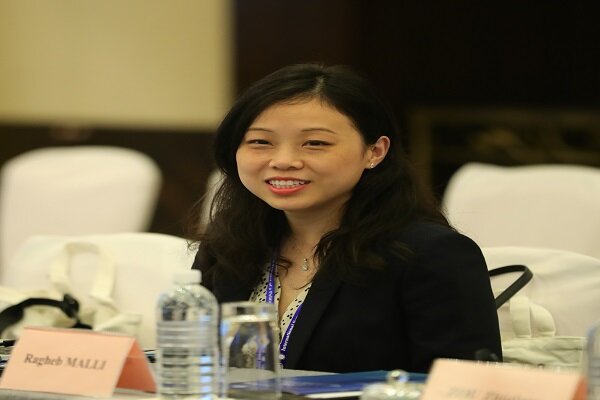The relationship between great powers in the epidemic control stage: Not a zero-sum game

The number of people diagnosed with coronavirus disease (COVID-19) has been rising, and the second wave of coronavirus might worsen the situation. The pandemic has triggered a global recession; unemployment rate reached an all-time high, and the public's anxiety surges.
People are anxious about economic decline. In the meantime, with the purpose of shifting domestic focus, the United States, a superpower, continuously created an artificially offensive external environment.
In the context of fighting the pandemic, the communication relationship between great powers countries is stumbling. No matter what relation pattern for great power would be in the future, at least it should not be a zero-sum game. A benign cooperative relationship between countries would be better to avoid misunderstandings and misjudgments. On the contrary, a pursuing of the zero-sum game political model will result in disaster, which harming national prestige, missing the timing of the implementation of more important domestic policies, undermining the unity of existing alliances, and ultimately dissipating country power.
To handle even greater challenges caused by this pandemic, the mutual assistance model between major countries is far superior to the aggressive confrontation model.
Political strengthening of global hegemony will not help prevent the spread of the virus
As the world's only superpower, the United States does not have enough moral responsibility. The U.S. government's responding to the epidemic is not efficient enough, while the Trump administration, with the ambition of maintaining global hegemony without taking up more international responsibilities, still turned its political focus to criticizing China. In fact, according to the Pew Research Center statistics, more than 60% of Americans say compared with other wealthy countries, the U.S. response to the coronavirus outbreak has been less effective.
Today, if the superpower merely emphasizes political hegemony and attempts to protect itself in isolation but does not use its comprehensive strength to help other countries fight against the epidemic and boost the global economy, spreading the virus and recession would have a boomerang effect on itself. An irrational and unpredictable superpower cannot eternally sustain its original centripetal forces.
Propaganda war undermine the confidence of mutual trust
Currently, the active form of confrontation is the propaganda war. The superpower actively selects opponents in diplomatic situations, use fierce words, unfounded accusations, and fabricated information to discredit the so-called opponents' political system and ideology.
On the one hand, the propaganda war is to cater to superpower's rising domestic populism; on the other hand, it is to shirk its responsibility to solve the fragmentation of society's problem. Beneath the superficial hostile policy lies a fading hegemony that is no longer confident and tolerant.
Groundless propaganda war will not really destroy a country's hard power, but really damages the country's credibility, and more seriously, it will destroy the psychological foundation of state-to-state cooperation. The goodwill and mutual trust between civilians are the basis for long-term, stable, and effective cooperation between countries.
Artificially create tensions deteriorate the pre-existing security situation
China's staged success in the battle against COVID-19 has contrasted with the failure of those reckless and indulgent anti-epidemic policies in the U.S. As far as China is concerned, in the recent epidemic control stage, China is obviously facing hostility from the United States and some rich Western countries. Many of them deny China's achievements in fighting the epidemic, stigmatize China and demonize China by blaming China for those countries' own virus control failure.
The connivance of rumors targeting specific country's technology, suppression of technology companies of specific countries, interfering with other countries' internal affairs, closure of consulates, expediting arms sales, etc., measures created unnecessary tension worsened relations between great powers, complicated the political situation.
Healthy relations between great powers need political wisdom
Responsible great powers should have forged the idea that the world is a community of shared future, and have confidence in responsible global community members, who believe that it must jointly deal with risks, jointly maintain peace and stability, and jointly create opportunities for economic development, rather than inciting conflicts and confrontations. The cold war mentality is not helpful in solving this serious crisis. Promoting the new cold war will cover up more important global issues, such as social injustice, racism, child hunger, and so on.
China believes the international community should proceed with globalization. However, the 'Five Eyes Alliance', which includes five Anglo-Saxon nations, has been engaged in decoupling, erecting walls, and deglobalization that will harm active international exchanges and cooperation that could have saved more lives. Development requires international cooperation, while the decision of who are close friends and how to cooperate are more sophisticated of political wisdom.
To avoid zero-sum games between great powers, we must be aware of the red line of interests that the other side will not compromise. Great mature power does not take the initiative to launch confrontation, but will not be afraid of injustice as well. The Chinese nation has never been driven down by adversity. What's more, the United States or the "Five Eyes Alliance" simply cannot represent the entire international community.
Dr. Yuan ZHANG is Professor and Director of the Religion in the Middle East (West Asia) Research Program of the Middle East (West Asia) Studies Institute (MESI) of Shanghai International Studies University (SISU).
